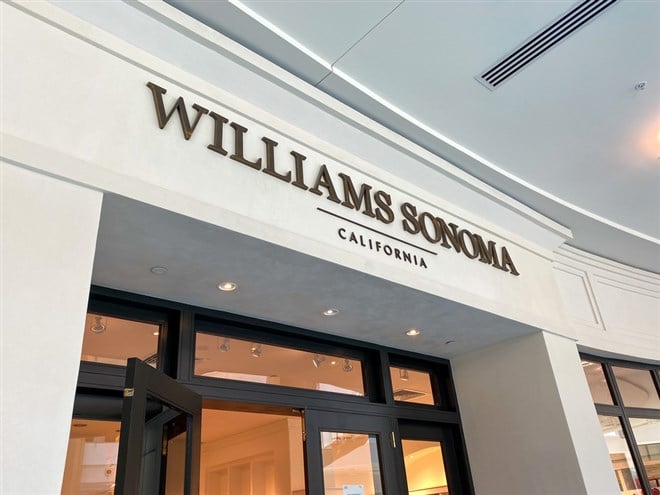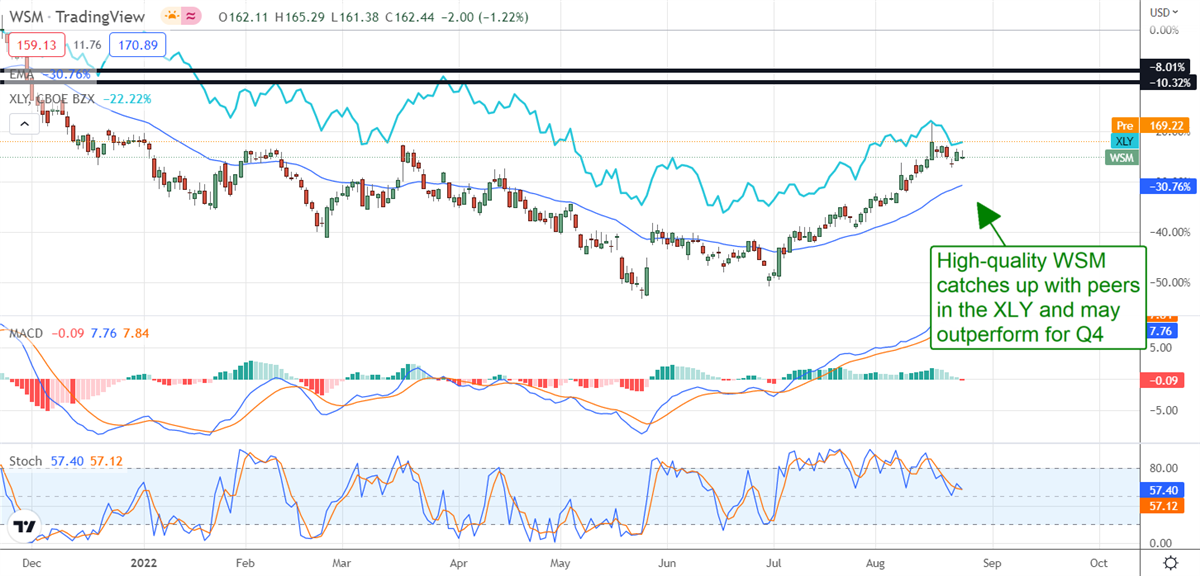
Williams-Sonoma (NYSE: WSM) is living proof that not all is lost within the retail world. Results within the retail sector are mixed to be sure but ultimately some have done poorly while others fared better. When it comes to Williams-Sonoma, calculus is simple. A respected brand combined with a well-established eCommerce network, sound inventory management, and a very healthy demographic resulted in not only better than expected performance but a favorable outlook that could send the short-sellers running scared. The short interest climbed to over 18% ahead of the earnings report and has been fueling a nice short-covering rally that may now accelerate into a squeeze.
“We continue to demonstrate our ability to perform by offering high-quality, differentiated, and sustainable products that our customers know and love. Our performance was driven by strong order fulfillment, positive demand comps, and our successful continued elimination of site-wide promotions,” said Laura Alber, President and Chief Executive Officer.
Williams-Sonoma's Tailwinds Are Still Blowing
Williams-Sonoma results prove that tailwinds are still blowing within the high-end retail market and that bodes well for other names in the Consumer Staples (NYSEARCA: XLP) and Consumer Discretionary (NYSEARCA: XLY) groups alike. The company reported $2.14 billion in net revenue to set a Q2 record and grow 9.7% versus last year. The revenue beat the Marketbeat.com analyst consensus by 570 basis points as well with notable strength across all channels. System-wide, the comp came in at 11.3% and nearly double the expectations with double-digit gains in both eCommerce and retail channels.
On a 2-year basis, comps are up 41% and only get larger the farther back in the history you go. On a brand basis, the core Williams-Sonoma line was weakest with a gain of 0.5% but it is more than 40% of the business. The smaller Pottery Barn, West Elm, and Pottery Barn Kids brands grew by a more robust 21%, 6.1%, and 5.3%.
The margin news is a little mixed but better than most in the industry at both the gross and operating levels. The company experienced gross margin compression of 50 bps due to increased freight and shipping while the operating margin improved by 50 bps GAAP and 40 bps adjusted. The operating margin improved on cost leverage, reduced or non-existent markdowns, and internal efficiency to drive a 20.6% increase in the GAAP EPS. The GAAP EPS came in at $3.87 to beat the consensus by $0.37 on top and bottom line strength aided by share repurchases. Turning to the guidance, the company reiterated its long-term targets of annual mid-single-digit revenue growth and a relatively flat margin.
There are risks for Williams-Sonoma and inventory is one of them. The inventory increased by 30% which is in line with industry giants like Walmart (NYSE: WMT) and Target (NYSE: TGT) which it competes with on a category basis. Others in the industry have reported increases of 50% to 70% which suggests an elevated need for discounting which has already been highlighted by the two larger companies. The difference is that Williams-Sonoma's inventory gain is offset by strong sales, fewer mark downs, margin health, and a more positive outlook.
The Technical Outlook: Williams-Sonoma Is In A Short-Covering Rally
Williams-Sonoma price action began to trend higher in early July on short-covering and a growing optimism the business was still healthy. Now, with short interest still high and the results better than expected, the price action is up 3.5% and on the verge of breaking above resistance. Resistance is near the $169 level, a break of which will confirm the current uptrend. If the trend is confirmed, investors should expect to see momentum build and take the stock up to the $195 level and well above the current consensus target. 





